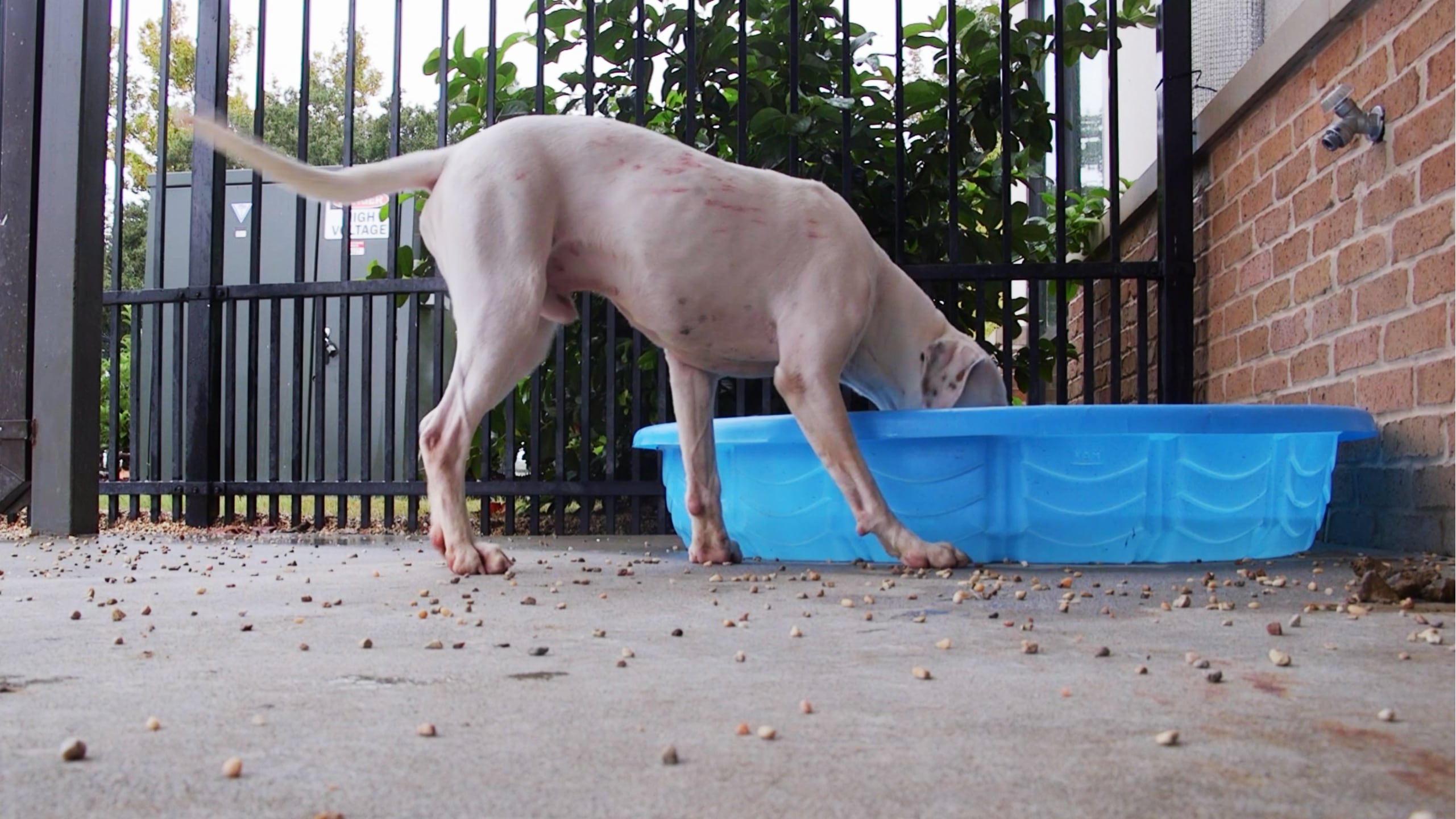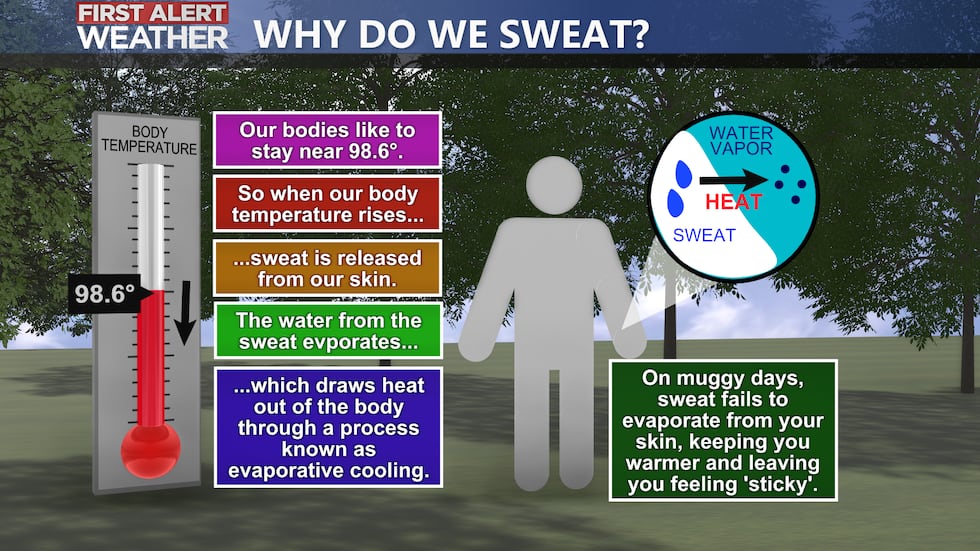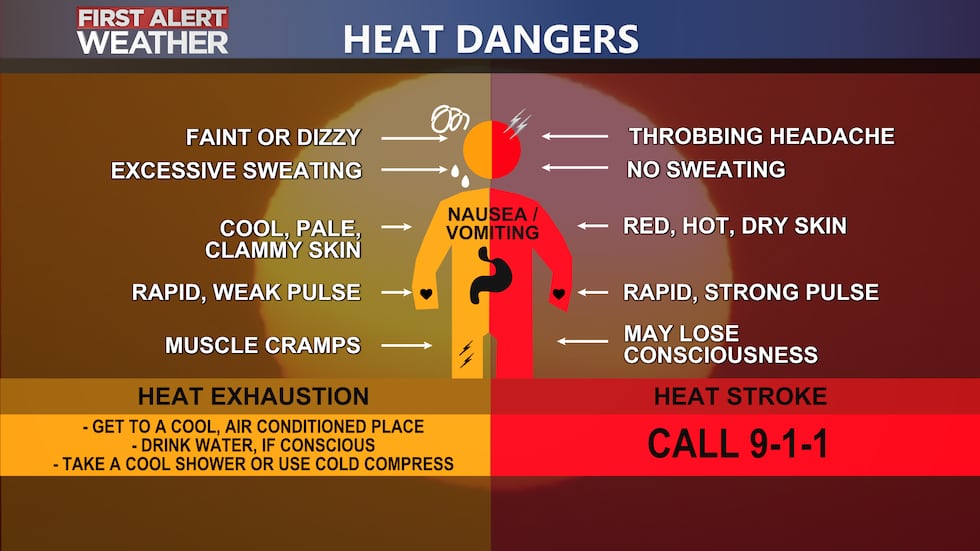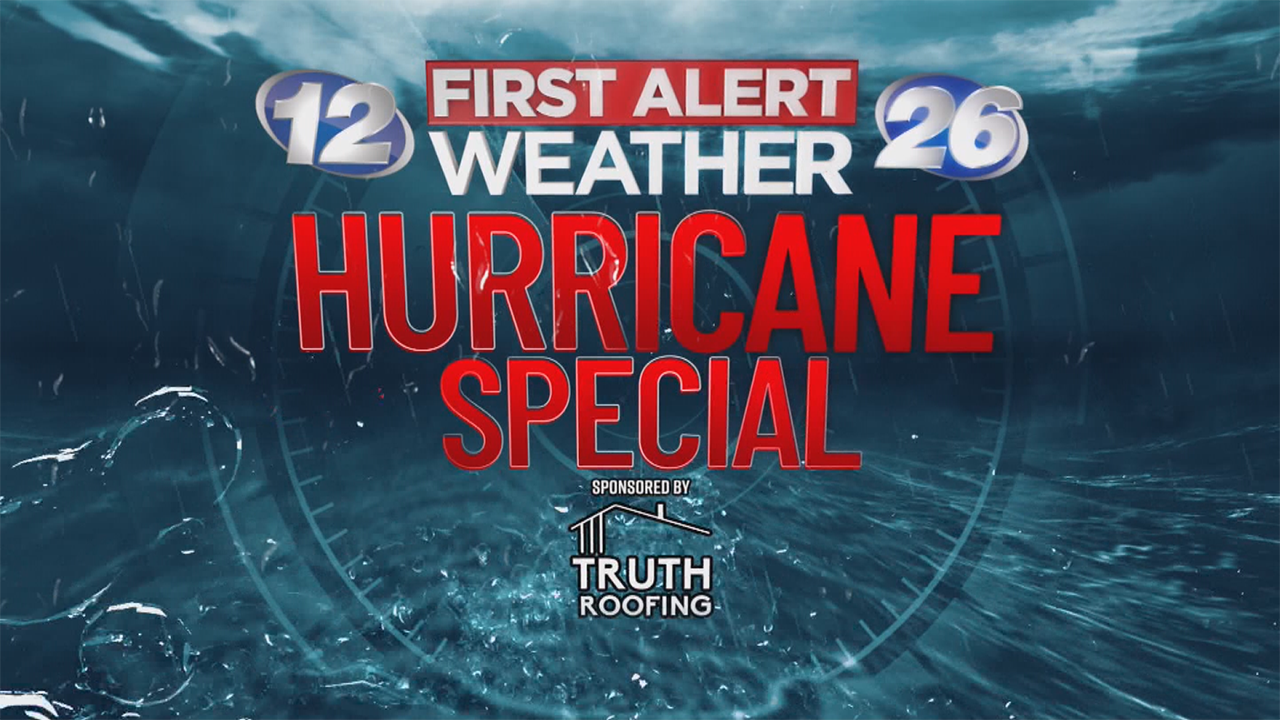Extreme heat safety: Doctors give tips to concerned CSRA parents
AUGUSTA, Ga. (WRDW/WAGT) - We talked with some local parents who are concerned on how to keep their children and themselves safe as temperatures are expected to in the 90s with heat index values near and above 100 degrees.
“The heat is very concerning to a parent because it’s so easy for the little ones to get dehydrated,” said a parent, Traci Sammons.
Sammons takes her kids to the park to play but makes sure to take them earlier in the day, which is something doctors recommend.
Those with chronic medical conditions, children, the elderly and pregnant women are at the most risk of developing heat-related illnesses, as are those who work outdoors.
With hot days and heat waves becoming more frequent and more intense because of climate change, people need to be aware of the risks posed by the heat and how to avoid them.
The American Red Cross says there are steps you can take to stay safe.
“We see a lot of just heat related injuries, period, you know, that being from sunburns to injuries when it gets hot like this. It doesn’t take much before you can suffer enough of an injury to come need our assistance,” said Dr. Shawn Fagan, Chief Medical Officer at the JMS Burn Center.
MORE | How to keep your pets cool and safe in CSRA’s high temps
How can you keep your family pets cool and safe as temps keep getting hotter? As the heat rises, the level of protection for your pet should, too.

It can be hard to beat the heat, especially at parks.
“They tried to use the PVC, which certainly assists in keeping it cooler, but certainly, you know, even the PVC can get up to 150 degrees, the old metal slides, this place can get up to 190 degrees, these are certainly well above what’s needed to cause a significant injury to the skin,” said Fagan.
If left untreated, conditions such as heat stroke can result in death, with some 2,300 heat-related deaths occurring in the United States in 2023.
The American Red Cross says there are steps you can take to stay safe.
When it’s this hot, it important to wear looser fitted clothing, drink lots of water, take breaks and look for signs of heat exhaustion like excessive sweating or feeling weak, tired or dizzy.
Sammons said, “I make sure that we bring our water bottles and we keep them in something that keeps the water cool as we’re out at the park. I also tried to make sure they have like loose clothing a little bit to help you know catch a breeze every now and then. And then we also have towels in the car that I’ll probably wet and kind of just put on them as we finish up the park.”
According to the Centers for Disease Control and Prevention, on average, heat is the top weather-related killer in the United States each year.
And these are precautions everyone should follow.
“I would just consider the extremes of age so you know, young children, more we consider our elderly but all of us are at risk,” said Dr. Fagan.
When it comes to heat, the actual air temperature is not the only factor - humidity plays a big part in how we feel during extreme heat.

When there are high humidity levels, it is harder for our bodies to cool off naturally. Our body’s naturally cool itself through sweat, but when humidity is high, the sweat cannot evaporate and cool our skin. This makes it feel even warmer to us outdoors.
Symptoms of heat-related illnesses include cramps, heavy sweating, nausea, dizziness and headaches.

Here are tips from the National Weather Service to stay healthy during extreme heat:
- Slow down: Reduce, eliminate, or reschedule strenuous activities until the coolest time of the day.
- Dress for summer: Wear lightweight, loose-fitting, light-colored clothing to reflect heat
- Drink plenty of water (not very cold): Focus on non-alcoholic and decaffeinated fluids. Drink water even if you don’t feel thirsty
- Use air conditioners: Spend time in air-conditioned locations such as malls and libraries if your home isn’t air-conditioned.
- Minimize direct exposure to the sun. Sunburn reduces your body’s ability to dissipate heat. Take a cool bath or shower
WATCH | News 12 FIRST ALERT Hurricane Special
Our News 12 special focuses on hurricane season and how you can be prepared. Watch it online.

You should check up on loved ones or neighbors who are at risk or do not have air-conditioning to ensure they are safe.
For more information about staying safe in summer heat, visit redcross.org or the Red Cross app by going to redcross.org/apps.
Copyright 2024 WRDW/WAGT. All rights reserved.















